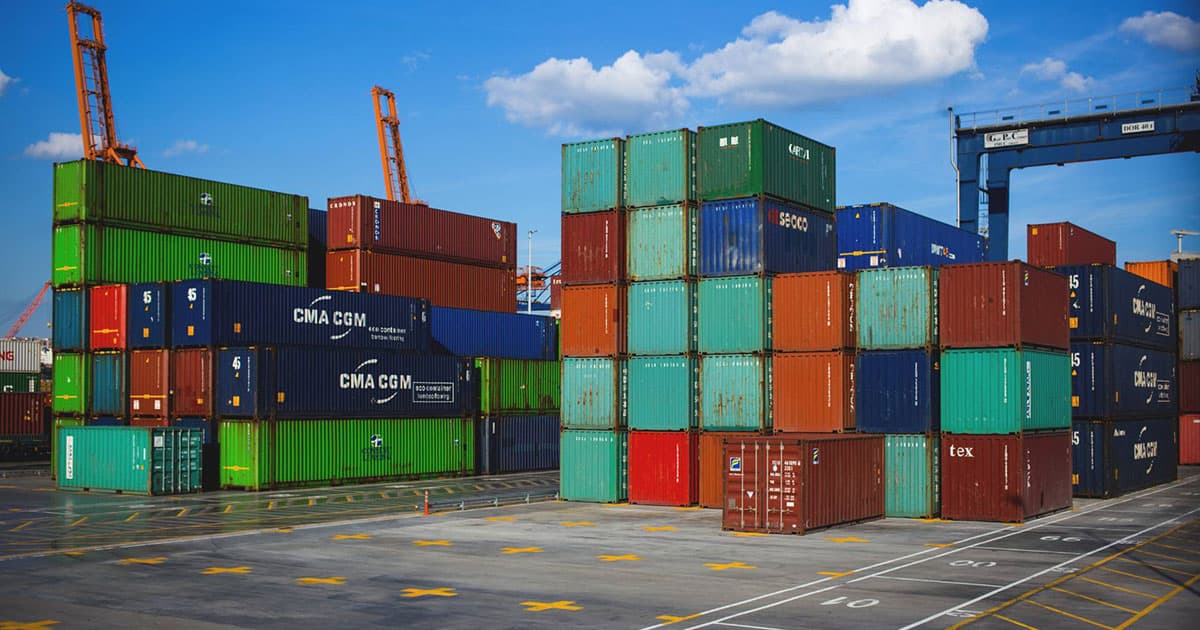Trump’s Tariffs Are Here — What Procurement Leaders Need to Know
Big changes are hitting global trade, and procurement teams must act quickly to stay ahead. President Trump’s new tariffs — 25% on imports from Canada and Mexico and 10% on imports from China — are meant to bolster domestic industries and address national security concerns. The administration says the policies won’t hurt the economy, but some critics (and data) say otherwise.
Undoubtedly, new tariffs mean a new state of affairs for procurement. The shift offers procurement teams the chance to strengthen relationships with local suppliers and reduce reliance on foreign sources. But it could also bring about rising costs, supplier disruptions, and uncertainty across the supply chain. In particular, duties on steel and aluminum could have a pronounced impact on automotive and manufacturing procurement.
Arkestro recently conducted a survey of 250 procurement and supply chain leaders to see how top procurement leaders are responding to President Trump’s tariffs. Our survey focused on professionals ages 25 and up working at U.S. companies with more than 50 employees. The results reveal a mix of optimism and concern, with a strong focus on trade policies, inflation, and supply chain resiliency.
In this blog, we’ll break down key takeaways from the survey, highlighting what new tariffs mean for procurement — and how you can proactively prepare for the future.

Confidence in Trade: Why Smaller Businesses See an Advantage
As businesses navigate the recent shifts in trade policy, procurement teams remain cautiously optimistic. Even with policy uncertainties, nearly 60% of procurement professionals feel confident about supply chain stability under a second Trump administration. Smaller companies and procurement directors are more keen to see stable domestic policies as an advantage.
But it’s important to note that optimism alone won’t keep supply chains running smoothly. Staying agile means using predictive analytics to spot market fluctuations before they happen. Arkestro’s AI-powered platform gives businesses real-time visibility into risks and opportunities, helping them adapt and stay ahead.
Rising Costs and Supply Chain Risks
Rising costs are one of the biggest concerns for procurement teams. According to Arkestro’s survey, about 43% of industry professionals expect increased costs for imported goods, while 30% worry about supply chain disruptions on a global scale.
The key to managing these risks is supplier diversification. Businesses need alternative sourcing strategies to minimize exposure to tariff spikes. With Arkestro’s predictive procurement platform, companies can model different trade scenarios, explore cost-effective supplier options, and proactively adjust their strategies.
Raw Materials, Logistics, and Production Costs Are Top Inflation Concerns
With 65% of respondents anticipating inflation to climb, procurement teams are bracing themselves for rising costs when it comes to raw materials, logistics, and production. Companies that don’t get ahead of these shifts risk serious financial strain.
Predictive procurement helps teams forecast price trends and lock in favorable contracts before costs skyrocket. Arkestro’s AI-driven insights empower businesses to secure better pricing, optimize spending, and keep margins intact — even in an inflationary market.
Subscribe to news from Arkestro.
No spam, just relevant procurement news and tips. You can unsubscribe at any time.
U.S. Manufacturing Growth Projections
Despite trade policy concerns, more than 65% of procurement leaders expect U.S. manufacturing to grow, especially in the Midwest and South. While this shift creates opportunities, it also demands smarter supply chain strategies.
As domestic production expands, procurement teams must ensure reliable supplier relationships and strong inventory management. Arkestro’s AI-powered recommendations help businesses optimize supplier selection, negotiate contracts, and plan production with confidence.
Reshoring and Nearshoring Momentum
Our survey results highlight another key trend: more companies are bringing manufacturing closer to home. Results reveal that nearly 75% of businesses are considering reshoring, and 68% are exploring nearshoring to reduce reliance on overseas suppliers.
But reshoring isn’t just about location — it’s about cost-effectiveness. Arkestro helps businesses analyze procurement data, supplier performance, and logistics costs to make smarter sourcing decisions. With predictive analytics, organizations can weigh the pros and cons of reshoring and build long-term supply chain stability.
AI-Driven Procurement Is Becoming the Industry Standard
Today’s procurement leaders are adopting AI at an incredible pace. A massive 90% of survey respondents see AI as a game-changer for managing cost fluctuations and supplier risks. Large enterprises are especially eager to integrate AI-driven solutions, with the goal of improving efficiency and enabling smarter decision-making.
Arkestro’s predictive procurement technology automates supplier negotiations, optimizes sourcing events, and drives cost savings. Companies that embrace AI will move faster, negotiate better, and improve collaboration with suppliers, giving them a significant competitive edge.
Inventory Optimization and Supplier Diversification Are Key AI Focus Areas
AI is about more than cutting costs. It’s transforming how procurement teams handle today’s supply chain challenges. Respondents said AI can make the biggest impact in three key areas: demand forecasting (32%), inventory optimization (32%), and supplier diversification (26%).
Arkestro’s AI-powered insights help procurement teams predict demand swings, adjust inventory levels, and diversify supplier networks. With the right technology in place, businesses can stay resilient and responsive in a rapidly shifting market.
Manufacturing, IT, and Retail Are Leading in AI and Reshoring Efforts
Though nearly every industry will be affected by President Trump’s new tariffs, procurement priorities vary by industry and region. Manufacturing, IT, and retail are leading the way in reshoring efforts and AI adoption. Meanwhile, companies in the South and Midwest are more concerned about trade costs, while businesses in the West and Northeast are pushing ahead with AI-driven decision-making.
These results make one principle clear: a one-size-fits-all procurement strategy doesn’t work now, and it certainly won’t work in the future. Companies need tailored solutions based on industry and regional factors. Arkestro’s AI-driven insights allow organizations to customize their procurement approach, ensuring the best possible outcomes in diverse market conditions.

Procurement Leaders Double Down on Supplier Diversification
When trade uncertainties loom, savvy procurement leaders tend to rethink their sourcing strategies. Our survey results show the same trend happening today. According to our data, 58% of respondents are prioritizing supplier diversification, hoping to minimize dependency on high-risk regions and safeguard against supply chain disruptions.
Industries like manufacturing, retail, and tech — where global suppliers are the norm — are leading this shift. Companies are scouting new supplier partnerships, branching out to different regions, and using predictive analytics to find the most reliable options. Ultimately, the goal is to reduce bottlenecks, keep production steady, and stay flexible no matter how trade policies change.
Long-Term Contracts Gain Popularity Amid Inflation Concerns
With inflation and supply chain disruptions looming, procurement teams are getting ahead of the game by locking in long-term supplier contracts. Nearly half (47%) of respondents say they’re prioritizing multi-year agreements to secure better pricing and avoid cost surprises down the road.
Long-term contracts offer more than price stability. They also help build stronger supplier relationships. Companies that commit to long-term deals often get better service, preferential pricing, and more reliable supply chains. With so much uncertainty in the market, procurement teams are making moves now to lock in favorable terms before costs climb even higher.
Navigating Trade Uncertainty With Predictive Procurement
If the first few months of President Trump’s time in office are any indication, the next four years could bring major shifts in trade policies, inflation, and supply chain dynamics. Your procurement team can’t afford to sit back and wait to watch it all unfold. You need a proactive, tech-driven approach to stay ahead of risks and seize opportunities.
Arkestro gives you the ability to transform procurement, reimagine supplier relationships, and drive sustainable cost savings. By leveraging the power of fact-based negotiation strategies, AI-powered supplier selection, and automated workflows, you can future-proof your procurement and stay competitive, no matter what changes lie ahead.
Want to see how Arkestro can help your business achieve 18.8% savings on every $1 million of spend? Get in touch with Arkestro today.
